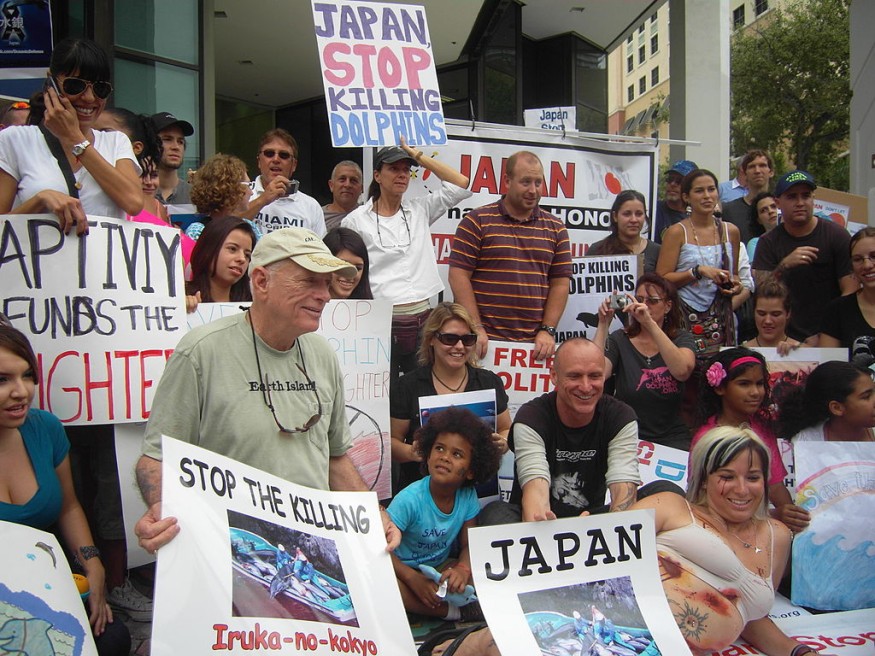Dolphins have been reportedly slaughtered as the annual dolphin hunt has commenced in Japan's whaling town of Taiji.
The event involves fishermen heading out across the East Asian country to capture the dolphins by luring them into shallow waters, where they are mostly stabbed to death.
Various reports indicate that controversial activity is receiving renewed backlash and criticism from the international community, including the United States.
Details about the Taiji dolphin hunt further came into light following the 2009 American documentary film entitled "The Cove" which highlighted the dolphin hunting practices in Japan.
Taiji Dolphin Hunt

Also known as the Taiji dolphin drive hunt, the so-called "Taiji dolphin hunt" is an annual six-month hunt which spans from September 1 to March 1.
Japanese officials have continuously defended the practice, claiming it is more of a necessity to feed the local populace, according to the Daily Star.
Meanwhile, The Dolphin Project revealed in their investigation that at least 563 dolphins, including 498 killed for meat and 65 sold to aquariums, were reported during their capture in Taiji during last year's season.
In 2000, up to 2,000 dolphins were reportedly caught by fishermen during the hunt. The number has gradually decreased to 1,700 in the early years.
Faroe Islands Dolphin Hunt
In similar practices, inhabitants of the Faroe Islands are also known for engaging in drive hunting which involves the strategy of herding and luring various dolphin and whale species, especially pilot whales, into shallow waters. It is in these areas where people will butcher and kill them.
During the summer season, approximately 700 long-finned pilot whales and hundreds of Atlantic white-sided dolphins are caught during the hunt's duration each year.
The Faroe Islands dolphin hunt has its "claimed" cultural roots back to the 9th century, which has been reported to be the basis of many Faroe Islanders that eating whales is a significant part of their history.
In 2022, Faroe Islands has decided to provisionally limit the controversial hunt down to 500 animals. This comes after the European island country received global criticism over its previous hunt in 2021, where more than 1,400 were killed, the BBC reports.
Endangered Species
The World Animal Protection cited from the IUCN Red List of Threatened Species the five species and six subspecies out of all the 41 known dolphin species are endangered.
Below are the five different species which are considered to be in the brink of population decline:
- Atlantic Humpback dolphin
- Amazon River dolphin
- Baiji dolphin
- Maui dolphin
- South Asian River dolphin
In general, wildlife authorities attribute human fishing practices and illegal hunting to be the main cause as to why dolphin populations are on a decline.
In recent years, climate change and global warming have been reported to pose significant threat to dolphin and whale population. Climate models project the environmental impact of the ongoing climate crisis will be felt by within the 21st century.
© 2026 NatureWorldNews.com All rights reserved. Do not reproduce without permission.





